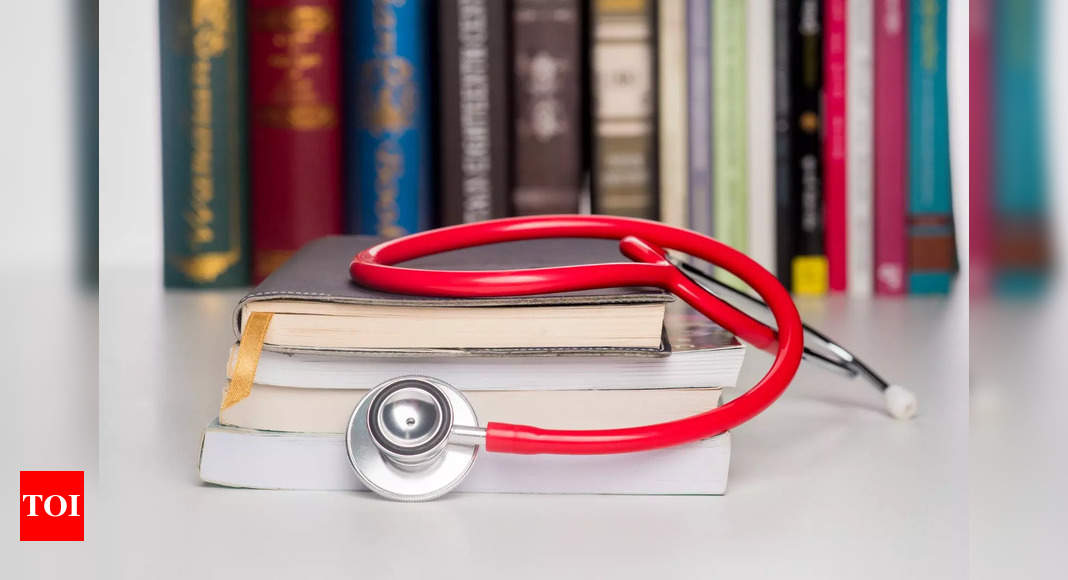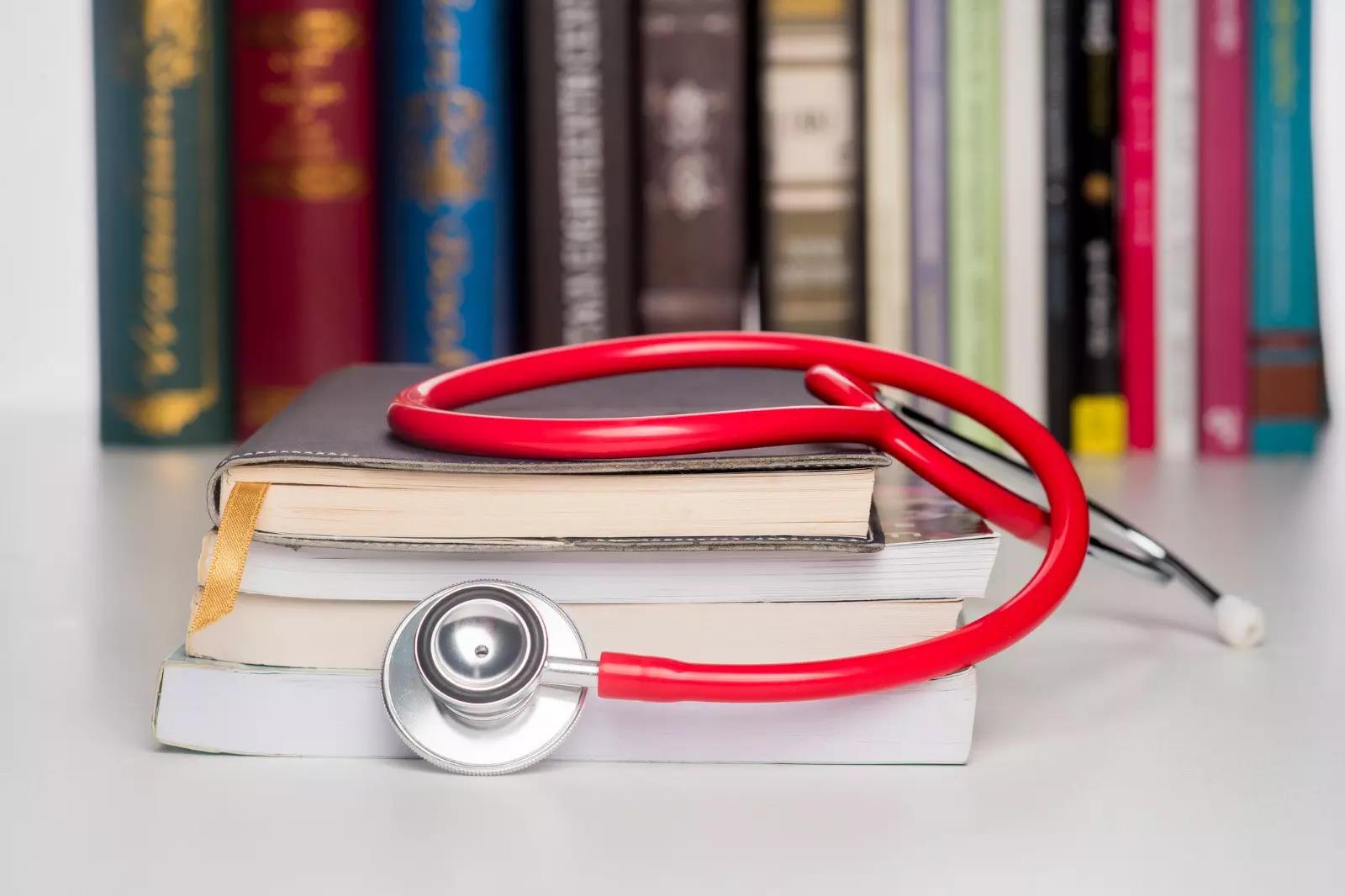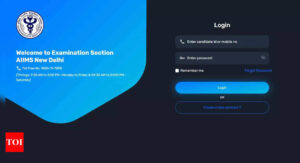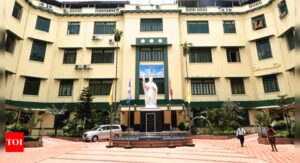[ad_1]
On September 2, the Supreme Court directed the Dean of Byramjee Jeejeebhoy Government Medical College, Pune, to establish a medical board to assess whether a student with a speech and language disability exceeding 40% is eligible for MBBS admission, reports Live Law.A bench comprising Justices BR Gavai and KV Vishwanath heard the case challenging the Bombay High Court’s decision, which had denied interim relief after the student’s admission was cancelled.
The petitioner argued against the “Graduate Medical Regulation, 1997” of the Medical Council of India, claiming it unfairly excluded individuals with disabilities of 40% or more, contradicting Section 32 of the Right of Persons with Disabilities Act, 2016. The student’s MBBS seat was revoked due to a 44-45% speech and language impairment. However, the petitioner contended that his condition did not cause functional limitations that would hinder his education. In response, the Supreme Court ordered the formation of a medical board to determine whether the disability would impede the student’s studies and granted interim relief by instructing the seat to be held vacant until further orders.
Earlier, the Court directed an expert committee, including members from the National Medical Commission (NMC), to review guidelines in light of the Centre’s March 2024 notification on assessing specific disabilities. This order followed a plea by an MBBS aspirant who was denied a reservation under the Persons With Disabilities (PwD) quota due to a mental health condition. Filed in 2022, the petition challenged the decision, as the aspirant had a mental health condition exceeding 40% as per the Indian Disability Evaluation Assessment Scale (IDEAS).
In a similar case last year (Vibhushita Sharma vs. Union of India), the Supreme Court directed a medical examination at PGI, Chandigarh, to assess the fitness of a petitioner who was denied MBBS admission due to a 55% speech and language impairment.
In another case last year, the Supreme Court dismissed a plea by a student with an 80% locomotor disability, who sought reservation under the Persons with Disabilities (PwD) quota for MBBS admission for the 2023-24 academic year.
These are only a few examples of cases that raise an important question: How inclusive is the medical field for people with disabilities?
Guidelines regarding admissions of students with “Special Disabilities”
First, let’s take a look at the classification of ‘Specified Disabilities’ under the Right of Persons with Disabilities Act, 2016, in the context of MBBS admissions.
According to this law, the extent of “specified disability” in a person shall be assessed in accordance with the “Guidelines for the purpose of assessing the extent of specialized disability in a person included under the Right of Persons with Disabilities Act, 2016” notified in the Gazette of India by the Ministry of Social Justice and Empowerment on January 4, 2018. The official document also states that the minimum degree of disability should be 40% in order to be eligible for availing reservation for persons with specific disabilities.
The notification talks about several kinds of disabilities, but we will focus on four: Blindness and Low vision, Deaf and Hard of hearing, Speech and Language, and mental illness.
Blindness and Low vision
People with visual impairment/ visual disability of equal to or more than 40% may be eligible to pursue MBBS course and may be given reservation subject to the condition that the visual disability is brought to a level of less than benchmark of 40% with advanced low vision aids.
Deaf and Hard of hearing
Person with hearing disability of more than 40% may be eligible to pursue MBBS course and may be given reservation subject to condition that the hearing disability is brought to a level of less than the benchmark of 40% with the aid of assistive devices/cochlear implants (CI).
Speech and Language
Person with Speech Intelligibility Affected (SIA) shall be eligible to pursue MBBS courses, provided SIA score shall not exceed 3, which is 40% or below. Persons with Aphasia shall be eligible to pursue MBBS courses provided Aphasia Quotient of 40% of below.
Mental Illness
Click here to read the official notification regarding the ‘Guidelines under Graduate Medical Education Regulation 2023’.
Challenges Faced by People with Disabilities While Pursuing MBBS
Pursuing an MBBS degree, whether in India or abroad, is widely regarded as one of the most challenging professional paths. For individuals with disabilities, these challenges can be even more daunting. Here are some general factors that may pose difficulties:
- Curriculum Rigidity: The MBBS curriculum is rigorous and physically demanding, often requiring tasks such as clinical rotations and hands-on procedures. These activities can be particularly challenging for students with physical or sensory disabilities.
- Ragging and Harassment: Despite efforts to curb ragging, it remains a problem in many medical institutions. Recently, the National Medical Commission (NMC) released a report prepared by the National Task Force on Mental Health and Wellbeing of Medical Students, highlighting several issues, including ragging. Although the report didn’t specifically address students with disabilities, it provided a broader understanding of the challenges faced by medical students. Read the full report here.
- Social Stigma: In our society, individuals with disabilities are often subjected to prejudice, even if they are fully capable of excelling in their studies. In the case of MBBS, this stigma can lead to the belief that students with disabilities are less deserving of their admission spot, further isolating them.
- Inadequate Mentorship and Support: Students with disabilities often lack access to mentors or peer support groups, which can lead to feelings of isolation. This absence of guidance makes it difficult to navigate the demanding and competitive environment of medical school.
How to Make MBBS More Inclusive for People with Disabilities
While the government has provided reservation policies for candidates with disabilities, challenges still persist for those who are capable of pursuing MBBS but are denied the opportunity. For instance, a recent case saw a student with a 44-45% speech and language impairment take legal action after his MBBS seat was revoked. In such cases, there should be a more flexible and inclusive framework under the Right of Persons with Disabilities Act, 2016, to accommodate capable candidates.
- Revised Regulations: The government needs to introduce more inclusive regulations under the Right of Persons with Disabilities Act, 2016, providing greater flexibility for students with certain disabilities.
- Disability Awareness for Faculty and Staff: Educational institutions should train their faculty and staff on disability awareness and inclusive teaching methods to foster a more supportive learning environment for students with disabilities.
- Disability Support Centers: Colleges should establish disability support centers to offer guidance on accommodations, assistive technologies, and other resources. These centers can act as a liaison between the institution and students, ensuring their needs are met.
By implementing these measures, the MBBS field can become more inclusive, enabling students with disabilities to pursue their medical aspirations without unnecessary barriers.
[ad_2]
Source link





